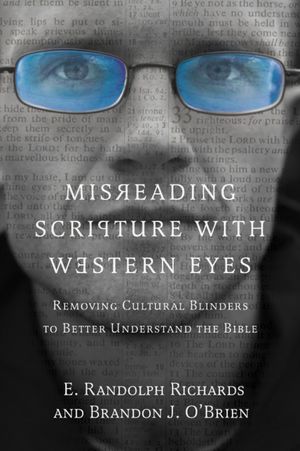I am guessing that every student has experienced the unwelcome feeling of receiving a test and having no clue which answer to circle. I remember one particular test that I took in high school that I simply used as an excuse to pay homage to AC/DC.
In his book, Misreading Scripture with Western Eyes, Randy Richards tells of his experience in Indonesia. Richards tells how a number of students left questions unmarked. When probed as to the reason that they did not even make a guess the students replied, “I didn’t know the answer”. Richards wondered why they didn’t just circle something, that way they would at least have a 25% chance of getting it correct. To this they responded, “What if I accidentally guessed the correct answer? I would be implying that I knew the answer when I didn’t. That would be lying!”
Richards confesses that his “American pragmatism had been winning out over my Christian standard of honesty”. He, and coauthor Brandon J. O’Brien, use this story to remind us of the benefit of looking at the world through a different set of eyes. Without their eyes we might be ignorant of the blindness of our own. There are undoubtedly, cultural mores that we simply assume.
So, how can you read the Scripture with cultural sensitivity? Richards and O’Brien suggest three things:
- Begin with yourself. Pay attention to your instinctive interpretations. Ask three questions of the text. First, “Clearly, this passage is saying (or not saying) ______ is right/wrong. Second, Is (that issue) really what is condemned? Thirdly, Am I adding/removing some elements?
- Look for clues in the text you’re reading. For example in Luke 6:1-9 the Sabbath is mentioned six times. Clearly that is the focus of the text not eating or healing.
- Read the writing of Christians from different cultures and ages. In other words read Scripture with a different set of eyes than your own.
Just because something is read through Western eyes does not necessarily mean it is wrong. In the same way just because someone from a different culture adopts a different interpretation it does not mean that they are correct and we are wrong; either way seeing something with a new set of eyes enriches our own Bible study.
I have benefited from the work of Richards and O’Brien and I believe you would too. (I hope to give a full review of this book within the next couple of weeks)